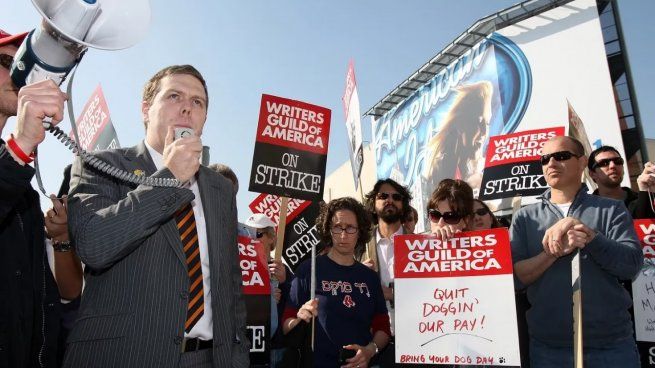Hollywood film and television workers voted overwhelmingly to give union negotiators the power to call a strike if contract talks with studios break down.
Hollywood scriptwriters will make an unprecedented claim that could paralyze series and movies. The screenwriters union decided to hold a strike on May 1 with the aim of protesting for salary improvements. The last one was in 2007 and it lasted 100 days.
The content you want to access is exclusive to subscribers.
The WGA, in a statement on Twitter, He said that 97.85% of members who voted did so in favor of allowing negotiators to order a work stoppage after May 1. Screenwriters say they have suffered during the streaming TV boom, in part due to shorter seasons and lower residual profits, and they are seeking pay raises from Netflix Inc, Walt Disney Co and other studios.

The last WGA strike, in 2007 and 2008, lasted 100 days. Television networks aired reruns and more reality shows, while the cost to California’s economy was estimated at $2.1 billion, according to the Milken Institute.
For their part, the studios don’t want another interruption after COVID-19 halted production around the world for months.
What happens is that the scriptwriters demand unification of contracts and criteria from the advancement of streaming platforms, which configures a new way of working within the environment.
Years ago, scriptwriters charged a residual for the broadcast of projects and the sale of videos, DVD’s and Blu-Ray. Since the birth of on-demand platforms, they do not have clear guidelines on the management of these residuals.
Although the productions have greater reach and reach new audiences, the same is not true of the earnings of Hollywood workers. Before, a writer could get up to $10,000 per replay on TV, now, just $10 on platforms.
In addition, the demand of the new audiences blows the neck: before, the writers projected seasons of 22 chapters while today they average half or even less. As if that were not enough, they must also deal with the uncertainty of cancellations and the constant turnover of employees, a situation that puts writers on the ropes. by shorter breaks and more intense work periods.
Source: Ambito
I am an author and journalist who has worked in the entertainment industry for over a decade. I currently work as a news editor at a major news website, and my focus is on covering the latest trends in entertainment. I also write occasional pieces for other outlets, and have authored two books about the entertainment industry.




